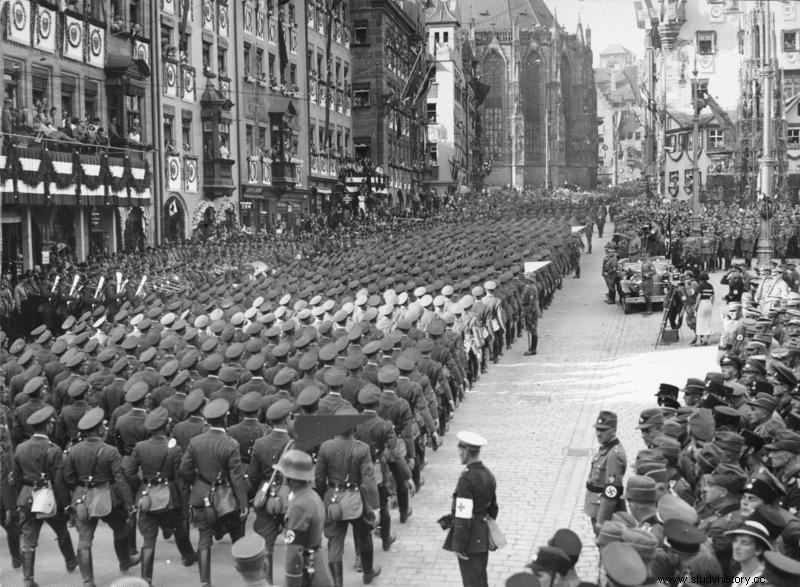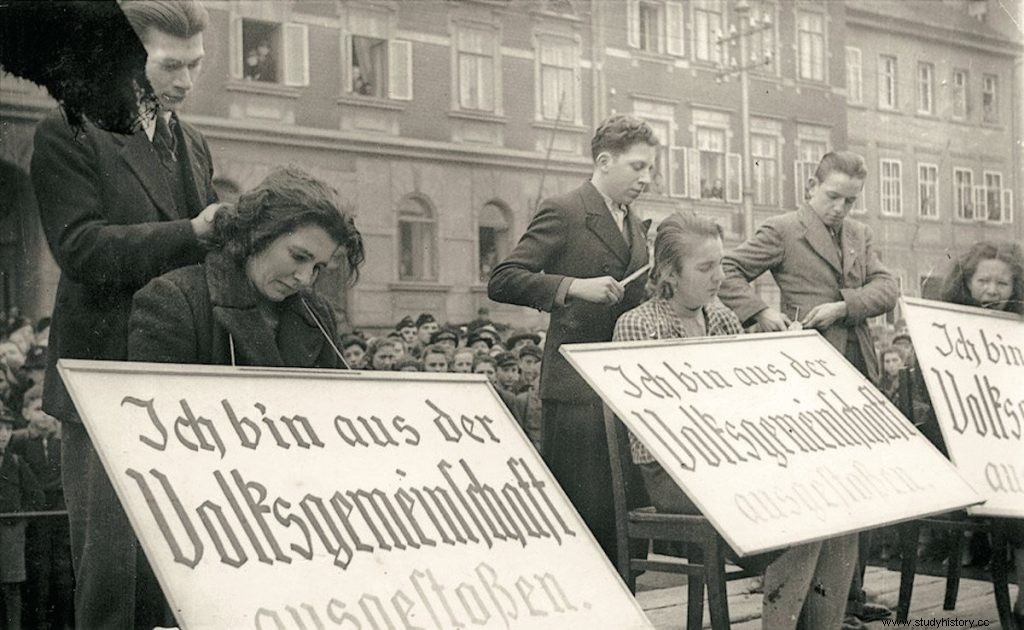What is Nazism or more correctly, what is National Socialism? Today the name "Nazi" is given to almost anyone in a very arbitrary way and in most cases without knowing its true meaning. In our current society, saying "Nazi" is more of a generic insult than an adjective that politically or ideologically describes the person to whom it is said.
We could say that the word "Nazi" is currently used when we want to refer to an authoritarian, intransigent person with ultraconservative or ultraliberal ideas . What it is to be a Nazi is however something quite different.
In order to define what Nazism is, the first thing we should do is establish a defining framework of what the left and the right mean. Within these two groups, which at first glance might seem quite defined, there is a great amalgam of ideas that are sometimes antagonistic and which are often in conflict, even though they can be ascribed to the same political sector.
The definition of left and right comes from the French revolution, when the representative chamber that emerged from it was divided into two large sectors, those seated on the left, who defended the right to vote for all citizens without social distinctions, and those seated on the right, who defended a census vote, reserved for people with a certain income and with properties.
From this, we can define left and right in a very generic way, such as the left being all the groups that defend equality among all people and the right as the groups defending that in a society, there are social groups that should have privileges over other groups.
The rise of the Nazi party
The National Socialist German Workers' Party, or NSDAP In its acronym in German, it was a party that emerged after the First World War. After the defeat of Germany and especially after the application of the Treaty of Versailles to the newly created Federal Republic of Germany, radical groups will emerge throughout the country that seek to seize power in a violent manner and that consider the idea of Germany from different perspectives. , even defending its disintegration and the creation of new Germanic states.

The peace treaty supposed the recognition of the defeat, but not only that, the French worried that it would be humiliating . The obligation to recognize itself as the sole cause of the war, to dismantle the gigantic German imperial army, which would have only 100,000 troops, the obligation to dismantle the navy, which was the largest in the world after the British in 1918 , the loss of all its colonies in Africa and Asia, the loss of 13% of its European territory and the obligation to pay the debts of its enemies caused German pride to fall to the ground. In this context, the Nazi party was born.
What did the Nazis want
The first feature that should be highlighted in the Nazi party is a party of a revolutionary character. A revolutionary is any person or group that wishes to establish a new society, radically different from the one existing in its historical moment, and who intends to use violence to achieve this, since it must eradicate the previous society.
Not all revolutionaries are the same. Depending on what society you want to create after that revolution, the revolutionary can be described as a communist, anarchist, liberal or in this case, a national socialist .

The National Socialist revolutionaries aimed to create a completely homogeneous society called Volksgemeinschaft, which in Spanish could be translated as «ethnic-national community». Those belonging to this new society should all belong to what Nazi theorists, such as Alfred Rosenberg, defined as the Aryan race and profess the ideology of the Nazi party.
Nazism is a totalitarian system, so in addition to being a dictatorship where there is no political freedom, there is also no freedom of thought. All those people who did not meet the profile of what a good German should be living in that new society were condemned to be expelled from Nazi Germany or even to be physically eliminated.
In addition, once the revolution was carried out, the individual would cease to have value for himself. Individual freedom would be abolished. A person would only have the right to remain in the new German society if he could contribute to the greatness of the nation with his work. From that moment on, the only important thing would be to attend to the Volksgeist, the "spirit of the people", which only the Nazi leaders could interpret.
Therefore, and very briefly, we could say that Nazism is externally right-wing, since it defends the privilege of the Germanic Aryans over other ethnic groups, but it would be internally left-wing, since it assumes that as long as the requirements of race and ideology, all individuals are equal in their society.
